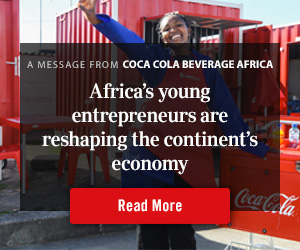By Ms. Marlene Ngoyi, CEO Fund for Export Development in Africa (FEDA)
If Africa produces more than three-quarters of the world’s raw cocoa beans, it should, intuitively, retain the majority of the cocoa industry’s value.
Except Africa doesn’t. Not even close.
In fact, the continent realises only 10% of this industry’s value. Preposterously, only 21% of African raw cocoa is semi-processed into ground cocoa and less than 1% is processed into chocolate on the continent.
Few could fail to appreciate that Africa’s economic potential and its current reality are starkly, and painfully, divorced. Despite Africa’s unrivalled resource endowments and the sheer number of contiguous markets it contains, with their exciting respective demographic trends, this remains a poor continent which consistently punches well below its economic weight.
Ultimately, this is a question of infrastructure and investment. Decades of neglect and exclusion from global capital flows have starved this continent and its economies of the opportunity to realise the enormous value they contain, and we inherit stunted industries which cannot deliver the prosperity they should. We must confront the fact that Africa has the lowest share of global manufactured value added – at an egregious 1.4%.
No matter how valuable the minerals we extract, or fruit we harvest, or timber we gather, if we do not complete their processing and production up the value chain in Africa we rob ourselves of their full value.
It is ludicrous that a continent as naturally wealthy as ours is so impoverished. However, a resolution is not beyond reach. The Fund for Export Development in Africa (FEDA) was created by Afreximbank in 2019 to address the $110 billion finance gap in equity financing for intra-African trade, value-added export development and Industrialisation value chains in Africa.
In essence, FEDA adds to the pool of institutions helping Africa to create its own capital base for development. With a focus on providing long-term, patient capital targeting all segments, from SMEs to corporates, and cutting across dynamic sectors of value-addition, services, and technology, the fund has been designed to spur Africa’s development under a new vision of de-commoditised, growth-oriented pathways underpinned by a dynamic private sector.
And less than four years since the commencement of operations, the evidence of the strategic importance of this institution is beginning to show as it has started to leave impactful footprints across the continent.
FEDA is not yet five years old. Already, however, the evidence of its strategic importance to Africa mounts. The Fund’s support for Special Economic Zones (SEZs) has seen these special areas emerge in Gabon, Benin, and Togo and a growing number of other countries. The economic impacts of these Industrial Zones are already significant, and they are, in the long-term, transformative. Put simply, these projects have changed the profiles of these countries from commodity-exporting countries to exporters of value-added or manufactured goods. By extending these countries’ industrial capacities, FEDA has enabled them to attract multiple times the values gained from mere commodity exports.
But the economic benefits of these zones are, in effect, exponential. As well as introducing “value-add” elements to exports, the SEZs help diversify economies away from a precarious reliance on one resource or sector. Indeed, the zones create strong domestic supply chains and introduce wealth into local economies, in the process generating quality, stable employment and supporting the emergence and expansion of a middle class.
With Funds Under Management equivalent to around 800 million US dollars, FEDA aims to franchise the SEZ industrial-complex model across Africa. More than being diverse, Africa’s economies also need to position themselves for the coming century of tech-oriented innovation and private sector dynamism. For this reason, and with seed funding provided by Afreximbank, FEDA is creating a $100 million Venture Capital Fund to focus on start-ups and SMEs.
African – and global – history was made with the establishment of the African Continental Free Trade Area (AfCFTA) in 2018. Creating the largest free trade area in the world, the AfCFTA constitutes a unique historical opportunity for a truly pan-African prosperity. In 2023, FEDA became the Fund Manager of the 1 billion US dollar AfCFTA Adjustment Fund, and in that sense assumed the responsibility of ensuring that the free trade area’s benefits are realised across our continent’s nations.
The standardising, assimilating economic influence of the trade area should – if well executed – deliver regional value chains across Africa, and ensure that this continent is able to export more than raw materials.
More than mere investment, FEDA’s work (and the ultimate aspiration of the AfCFTA) must be a total re-imagination of Africa’s economies. For too long, we have accepted that the end value of our resources and activities be captured outside of Africa. Until we reclaim our right to diverse, sophisticated and value add economies, so many other rights – political, economic and social – will remain elusive.

